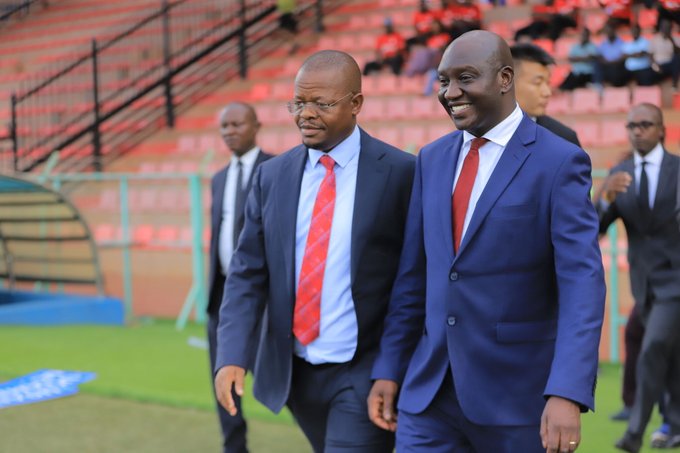Government cannot afford striking teachers’ salary demands, public service minister reveals
Mukasa confirmed that while negotiations with UNATU failed, leading to the continued strike, the government had secured agreements with other teaching groups.

The Minister of Public Service, Muruli Mukasa, has delivered a stark assessment of the nation’s financial fragility, informing Parliament that the government is currently incapable of meeting the salary demands of striking teachers because nearly 70% of the national budget is funded through external loans and grants.
Appearing before Parliament’s Committee on Local Government on October 1st, 2025, Mukasa disclosed that only 31% of the national budget is generated through internal revenue, a level insufficient to guarantee the salary hikes sought by the Uganda National Association of Teachers Union (UNATU).
The Minister was addressing queries raised by Members of Parliament regarding the ongoing labor unrest, which stems from the government’s unfulfilled commitment made in 2019 to increase teachers’ emoluments.
Mukasa explained that the government operates under an internal agreement to fund public service salaries strictly through domestic revenue, a measure meant to protect the country from dependency.
“Currently, really, we can only raise 31% of our budget,” Minister Muruli stated. “Yes, 31%, the rest is raised through loans, through development partners, and so on, you can see how vulnerable we are as a country.”
He further elaborated on the self-imposed fiscal constraint: “It has been agreed internally, that for paying our workers, we must not raise loans from development partners, we must pay our workers from the revenue that we generate internally and the revenue at most must not be more than 35%… of the domestically generated revenue.”
The Minister stressed that crossing the 31% threshold is currently impossible, rendering the immediate fulfillment of UNATU’s demands unattainable.
“So if we go to that level, then obviously if we are raising 31%, then we cannot actually afford. That’s why we decided that we should raise salaries,” the Minister told the committee, which was meeting to consider The Human Resource Management Professionals Bill, 2025.
Mukasa pleaded with the legislators to understand the government’s predicament before assuming indifference to the teaching crisis.
“I’m just giving a background so that you can appreciate why we cannot meet the demand of the teachers at this moment, be patient, because you may think that we are just acting arbitrarily or we have no feeling and we are not sensible. We are not sensitive to the problem of teachers,” he added.
Mukasa confirmed that while negotiations with UNATU failed, leading to the continued strike, the government had secured agreements with other teaching groups.
“The teachers rejected our advice and insisted on continuing the strike. Before them, we engaged the union of the humanities teachers, the arts teachers and we had discussions with them, and for them they agreed that they would not lay down tools,” he concluded.
The revelation underscores the deep financial challenges facing the country, placing the burden of fiscal management directly against mounting pressure from public sector unions demanding better compensation amidst high inflation.







